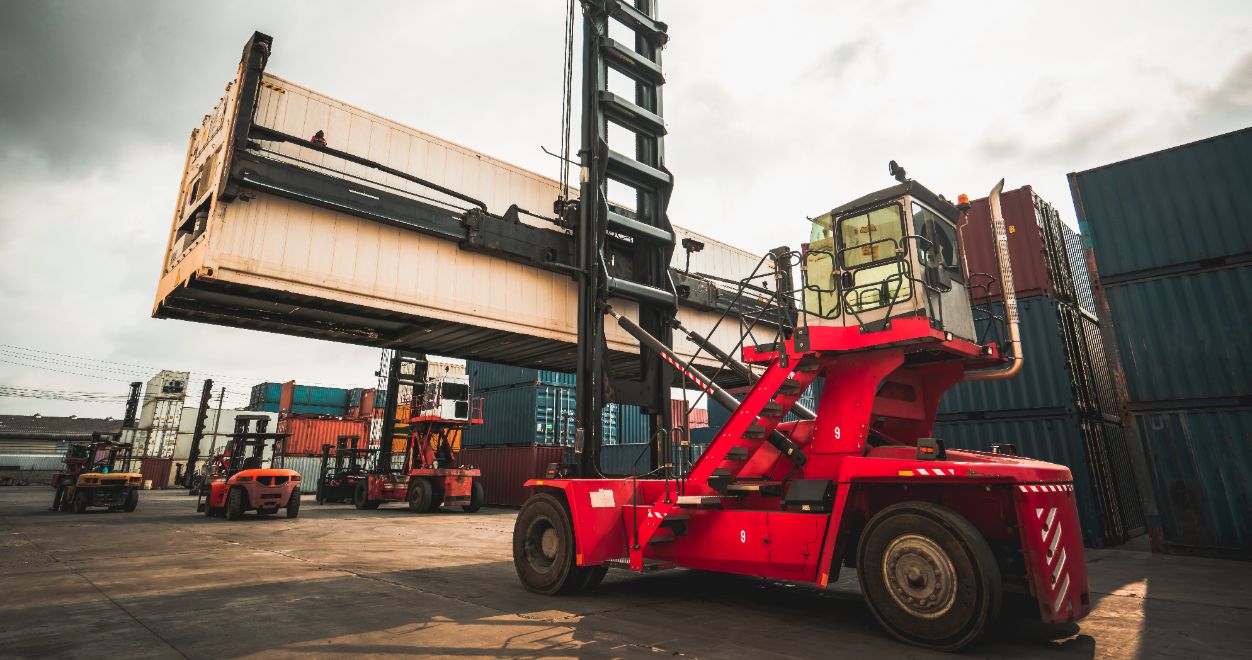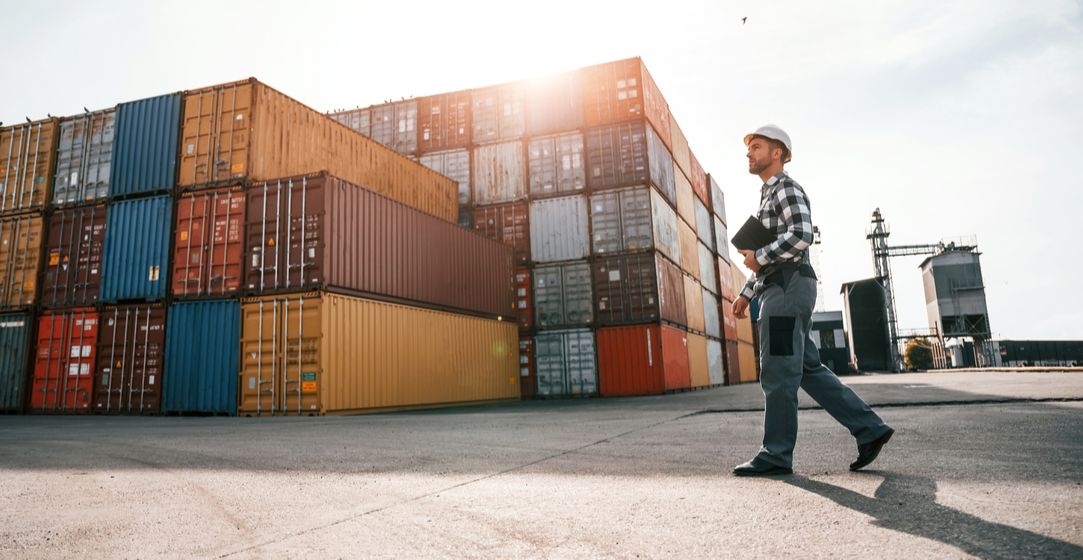Freight Forwarding Services Sydney
Discover top-tier freight forwarding services in Sydney. Our expert team ensures safe, timely, and cost-effective shipping solutions for all your logistics needs. Contact us today for a free quote!
Understanding Freight Forwarding Services: An In-Depth Guide

Freight forwarding services play a crucial role in the global supply chain, facilitating the efficient movement of goods across borders and continents. This comprehensive guide will delve into what freight forwarding services are, how they work, their importance, and the benefits they offer to businesses of all sizes.
Need a reliable freight forwarder in Sydney? Contact us today for a consultation or to request a quote. Our friendly and knowledgeable team is here to assist you with all your shipping and logistics needs.
From air and sea freight to customs clearance and warehousing, we offer a wide range of services to meet your logistics requirements. Our solutions are tailored to your needs, ensuring the most efficient and cost-effective transportation for your goods.
At freight forwarding services Sydney, we pride ourselves on delivering seamless and efficient logistics solutions. With years of experience and a dedicated team, we ensure that your cargo reaches its destination safely and on time. Trust us to handle all your shipping needs with professionalism and care.
What Are Freight Forwarding Services?

Freight forwarding services encompass a wide range of activities related to the transportation of goods. A freight forwarder acts as an intermediary between the shipper and various transportation services, such as air freight, ocean freight, road transport, and rail transport. Their primary role is to coordinate and manage the logistics of shipping goods from one location to another, ensuring that the process is efficient, cost-effective, and compliant with all relevant regulations.
Key Functions of a Freight Forwarder
Shipment Coordination: Freight forwarders plan and coordinate the entire shipping process, from the point of origin to the final destination. This includes selecting the most appropriate mode of transport, determining the best routes, and scheduling shipments to meet delivery deadlines.
Documentation Management: International shipping requires a plethora of documents, including bills of lading, commercial invoices, export licenses, and customs declarations. Freight forwarders handle all necessary paperwork, ensuring that it is accurately completed and submitted in a timely manner.
Customs Clearance: Navigating customs regulations can be complex and time-consuming. Freight forwarders have expertise in customs procedures and work with customs brokers to ensure that shipments clear customs without delays. They handle duties, taxes, and any other regulatory requirements.
Cargo Consolidation: To optimize shipping costs, freight forwarders often consolidate multiple smaller shipments into a single larger shipment. This process, known as consolidation, maximizes the use of container space and reduces transportation costs.
Insurance and Risk Management: Freight forwarders offer cargo insurance to protect shipments against potential risks such as damage, loss, or theft. They also implement risk management strategies to minimize the likelihood of such incidents occurring during transit.
Warehousing and Distribution: Many freight forwarders provide warehousing services, offering storage solutions for goods before they are shipped or after they arrive at the destination. They may also manage the distribution of goods to final recipients.
How Freight Forwarding Services Work

The process of freight forwarding involves several steps, each of which is critical to ensuring the smooth and efficient transportation of goods:
Initial Consultation and Planning: The freight forwarder begins by consulting with the shipper to understand their specific needs and requirements. They gather information about the nature of the goods, preferred delivery timelines, budget constraints, and any special handling requirements.
Quotation and Agreement: Based on the information gathered, the freight forwarder provides a detailed quotation outlining the costs and services involved. Once the shipper agrees to the terms, a formal agreement is established.
Booking and Documentation: The freight forwarder books cargo space with the selected carriers and prepares all necessary documentation. This includes the bill of lading, commercial invoice, packing list, and any other required documents.
Pickup and Transportation: The freight forwarder arranges for the pickup of the goods from the shipper’s location. The goods are then transported to a warehouse or directly to the port/airport for shipment.
Customs Clearance: Upon arrival at the destination country, the freight forwarder manages the customs clearance process. They work with customs brokers to ensure that all duties and taxes are paid and that the shipment complies with local regulations.
Final Delivery: After clearing customs, the freight forwarder arranges for the final delivery of the goods to the recipient. This may involve additional transportation by road or rail, depending on the destination.
The Importance of Freight Forwarding Services
Freight forwarding services are vital for businesses engaged in international trade for several reasons:
Expertise and Knowledge: Freight forwarders possess extensive knowledge of international shipping regulations, customs procedures, and logistics management. Their expertise ensures that shipments are handled efficiently and in compliance with all legal requirements.
Time and Cost Savings: By leveraging their industry connections and negotiating power, freight forwarders can secure better rates with carriers and optimize shipping routes. This results in significant cost savings for shippers. Additionally, freight forwarders handle all logistics, allowing businesses to focus on their core operations.
Risk Mitigation: The complexities of international shipping pose various risks, including delays, damage, and regulatory issues. Freight forwarders implement risk management strategies and provide insurance options to protect shipments from unforeseen events.
Streamlined Operations: Freight forwarders streamline the shipping process by managing all aspects of transportation, from documentation to delivery. This ensures a seamless flow of goods through the supply chain, reducing the likelihood of disruptions and delays.
Benefits of Using Freight Forwarding Services
Global Reach: Freight forwarders have established networks of carriers and agents worldwide, enabling them to offer reliable shipping solutions to virtually any destination.
Customized Solutions: Freight forwarders tailor their services to meet the specific needs of each client. Whether it’s handling hazardous materials, providing temperature-controlled transport, or managing oversized cargo, they offer customized solutions to address unique requirements.
Enhanced Visibility: Modern freight forwarders utilize advanced tracking systems to provide real-time visibility into the status of shipments. This transparency allows shippers to monitor their goods throughout the entire transportation process.
Regulatory Compliance: Freight forwarders stay up-to-date with the latest regulations and industry standards. They ensure that all shipments comply with international trade laws, reducing the risk of penalties and delays.
Freight forwarding services are an essential component of the global supply chain, facilitating the efficient and reliable movement of goods across borders. By partnering with a reputable freight forwarder, businesses can benefit from their expertise, cost savings, and comprehensive logistics solutions. Whether you are a small business looking to expand internationally or a large corporation managing complex supply chains, freight forwarding services offer the support and resources needed to navigate the challenges of global trade.
Case Studies and Examples

A small business specializing in handmade crafts wanted to expand its market reach by selling its products internationally. By partnering with a freight forwarder, the business was able to navigate the complexities of international shipping, manage customs clearance efficiently, and reduce shipping costs through consolidation services. As a result, the business successfully entered new markets and increased its revenue.
A large multinational corporation faced challenges in managing its global supply chain, with frequent delays and high shipping costs impacting its operations. The corporation engaged a freight forwarder to optimize its logistics. The freight forwarder implemented advanced tracking systems, streamlined customs clearance, and negotiated better rates with carriers. This led to improved supply chain efficiency, reduced costs, and enhanced customer satisfaction.
Conclusion
Freight forwarding services are indispensable for businesses engaged in international trade. They streamline the complex logistics of shipping goods across borders, enhance supply chain efficiency, and provide significant cost savings. By managing customs clearance, optimizing shipping routes, and implementing risk management strategies, freight forwarders ensure that goods are transported safely and efficiently. Their expertise, global networks, and advanced technology make them valuable partners for businesses looking to thrive in the competitive global market.
For businesses of all sizes, partnering with a reputable freight forwarder can mean the difference between success and failure in international trade. Whether expanding into new markets, managing high-volume shipments, or navigating the intricacies of customs regulations, freight forwarders offer the support and solutions needed to achieve operational excellence and business growth.
Related Articles
